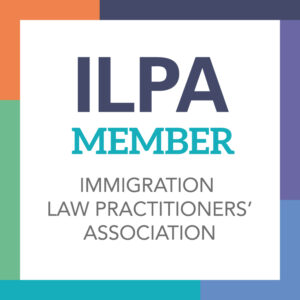In a move aimed at reducing legal migration numbers to the UK by around 300,000, on Monday, 4 December, the Home Secretary unveiled a series of significant measures, including changes to the Skilled Worker minimum salary threshold, modifications to the Shortage Occupation List, adjustments to dependant visas, and a review of the Graduate visa route. These changes, set to take effect in Spring 2024, come on the back of a recent increase in visa fees and an increase in Immigration Health Surcharge due to come into force from January 2024.
They represent a substantial shift in the UK’s immigration landscape and carry wide-ranging implications for businesses, workers and family members of British or settled persons. In this post, we will delve into the key changes and their potential impacts for businesses and individuals. Skilled Worker Minimum Salary Threshold The headline change is the substantial increase in the minimum salary threshold for Skilled Worker Visa, rising nearly 50% from £26,200 to £38,700 per annum. While Health and Care Workers will remain exempt from the increase, this adjustment poses challenges for businesses, particularly those heavily reliant on sponsoring lower-paid skilled workers. The increase, exceeding the median UK salary, may lead to difficulties in recruitment for sectors like hospitality, where an estimated 95% of sponsored visas for roles such as chefs and managers could fail to meet the new threshold.
In our analysis, 210 out of the 225 occupation codes that are eligible for a Skilled Worker visa (excluding health and education occupation codes) will be impacted by the increase in the minimum salary threshold, as the going rate in these 210 occupation codes is currently less than £38,700 (assuming a 37.5 hour working week).
We calculate that minimum salaries for jobs falling within these 210 occupation codes will need to increase by between 1% and 47.7% in order to satisfy the new minimum. Of the 210 occupation codes facing an increased general salary threshold, workers whose jobs fall within 116 (55%) of these occupation codes will need to be paid a minimum salary that is at least 47.7% higher than under current arrangements (again assuming a 37.5 hour working week).
Since the going rate is calculated on the basis of a 37.5 hour working week and must be pro-rated based on the weekly working hours stated on the certificate of sponsorship (CoS), the new arrangements will put pressure on employers to increase the working hours of sponsored workers, either as an alternative to paying higher salaries or to offset some of the additional cost.
That said, as the Migration Observatory has pointed out, it is also true that the elevated £38,700 requirement for long-term skilled work visas impacts only a limited segment of recipients. Specifically, approximately half of the 208,000 Skilled Worker visas granted to primary applicants in the year ending September 2023 were allocated to care workers and senior care workers. Notably, these groups are exempted from the salary increase.
Additionally, another 20% of visas were issued to individuals in health or teaching roles, and they remain unaffected by the new requirement as their salaries are determined based on nationally agreed pay scales.
Consequently, the repercussions of the increase to the skilled worker minimum salary threshold will be felt by the remaining occupations, constituting approximately 30% of visa grants, predominantly situated in the private sector. Even for this category of workers though, it’s worth noting that many migrants occupying these positions already earn salaries surpassing the newly established £38,700 threshold. As the Migration Observatory has observed, the impact of the raise will, therefore, be most noticeable in middle-skilled occupations, such as butchers and chefs, where typical salaries hover around £26,000, mirroring the existing salary threshold.
Small businesses, particularly those beyond London and the South East, generally offer slightly lower pay, making them also more susceptible to the impact of the heightened threshold. Salaries being paid to existing employees will not be impacted immediately. It also remains unclear whether sponsored skilled workers applying under the Skilled Worker route will be able to be paid less than £38,700 where, as currently, they are awarded additional so-called tradable points for other attributes such as being a new entrant to the labour market or having a job offer for a job in a shortage occupation. If they are able to be paid less than the new general salary threshold of £38,700, the applicable minimum remains to be seen. Shortage Occupation List (SOL)
The government intends to replace the existing Shortage Occupation List with a new Immigration Salary List. The Immigration Salary List will remove the 20% discount to the minimum salary for shortage occupation roles, although it is understood that a general salary threshold discount will be retained. This change, coupled with a review by the Migration Advisory Committee (MAC), indicates potential disruption in sectors such as technology, engineering and construction. Employers should anticipate a reduction in the number of occupations on the list, potentially impacting recruitment strategies in specific industries.





